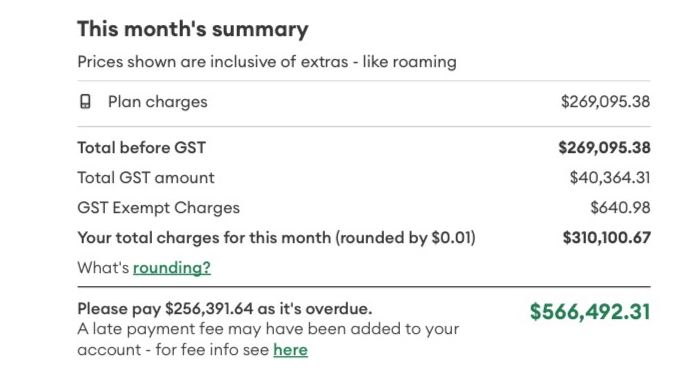
That was the predicament for Tim Howe, owner of car park company Central Park Ltd.
Howe changed his data plans with internet provider One New Zealand about a year ago from unlimited to limited in an attempt to save costs on his company’s devices.
He received a $256,000 bill in January and then a $310,000 bill in February.
“Sending a $566,000 bill for two months of internet across a small business is an absolute joke,” said Howe.
Howe said he had been trying since January to get One NZ to rectify the situation by cancelling the bills, activating data usage warnings, and setting up a ‘shut-off’ system for high data usage.
A One NZ spokesperson said the company had been in touch with Howe throughout January, February and March with the “aim of resolving the issue”.
Data usage alerts were not set up during the onboarding process for the new plan due to an error.
“We explained why this occurred, and ensured notifications for data overage were then switched on from that point,” said the spokesperson.
But Howe says usage warnings were not activated.

“This has been an absolute headache with the amount of time I’ve had to spend going back a forth with them,” said Howe.
He has switched to a new provider.
The issue started in April last year when Howe was surprised to receive an about $9000 monthly bill when he expected to be paying less than his previous plans.
Bills under the previous unlimited plans were about $900 a month.
The $9000 bill was addressed with One NZ and withdrawn.
Howe received bills of about $900 a month between May and December.
He thought the issue was resolved – until he received the big bills in January and February.
The One NZ spokesperson said its advice for business customers concerned about going over their data limits and receiving unexpectedly large bills was to make sure they have set up alerts for over-usage of data.
“Once customers receive these sorts of alerts, they will need to go into their account and ensure they are stopping data usage,” the spokesperson said.
Howe said One NZ was not taking responsibility for issue.
“One New Zealand as the provider has the responsibility to make sure customers are set up the right way and that they are not sending these ridiculous bills.”
He is not certain why so much data was used but it appeared to be due to software updates to the company’s operating system, which were downloading in terabytes instead of a lower byte count.













